When you enter the military, you'll encounter slang terms like 'boot,' 'newbie,' or 'FNG' that refer to new arrivals. You might also hear 'Fresh Meat,' acknowledging the learning curve for new personnel. Understanding this slang helps you navigate the military environment effectively. As a replacement, you'll be referred to by these colloquialisms, which are used to describe new personnel entering the military. Familiarizing yourself with military culture and terminology will help you communicate effectively. As you move forward, you'll discover more nuances of military language, and uncovering these intricacies will become essential to your success.
Boot Camp Basics
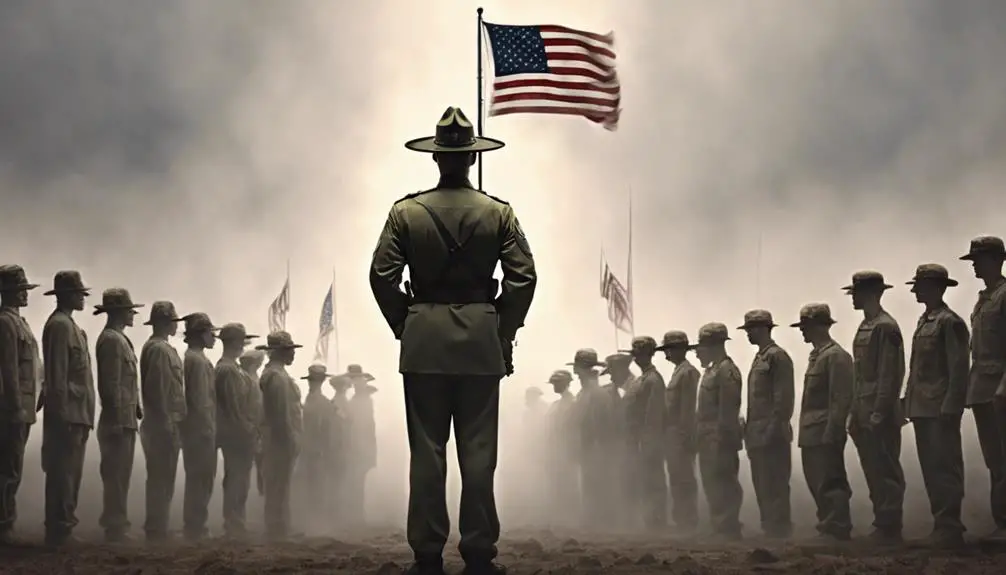
Upon arrival at boot camp, you'll undergo an initial intake process, which includes in-processing, medical screenings, and distribution of uniforms and gear. This process sets the tone for your military career, so it is crucial to pay attention to every detail. Your drill instructor will be your primary point of contact, guiding you through the transformation from civilian to soldier. Their duties include instructing, mentoring, and evaluating your performance throughout boot camp.
In your barracks, you'll find the essentials for daily life, including bunks, lockers, and shared facilities. You'll be expected to maintain a high level of cleanliness and organization in your living space, as well as adhere to strict schedules for meals, training, and downtime. Barracks life essentials include laundry facilities, showers, and communal areas for relaxation. Your drill instructor will emphasize the importance of teamwork, discipline, and attention to detail in every aspect of barracks life. By adhering to these standards, you'll develop the skills and habits necessary to succeed in the military.
Slang for New Arrivals
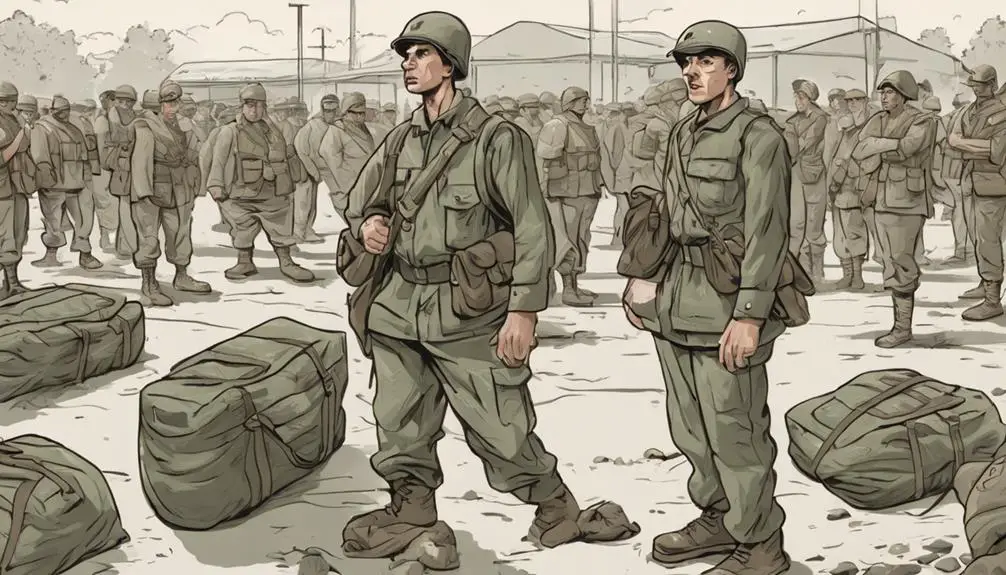
You'll quickly learn that military personnel use specific slang to refer to new arrivals, including 'boot,' 'newbie,' or 'FNG' (Freaking New Guy), which are used to describe those who are still adapting to the military lifestyle. These terms are not derogatory, but rather a way to acknowledge the learning curve that new personnel face. You may also hear the term 'Fresh Meat,' which refers to new recruits who are still in the process of adapting to the military environment. As a new arrival, you'll likely be referred to as a 'newbie' or 'FNG' until you gain more experience and become familiar with the military culture. In combat zones, you might hear the phrase 'Newbies in the Trenches,' which describes new personnel who are still adjusting to the harsh realities of war. Understanding these slang terms will help you better navigate the military environment and communicate more effectively with your fellow personnel.
Ranks and Roles Explained
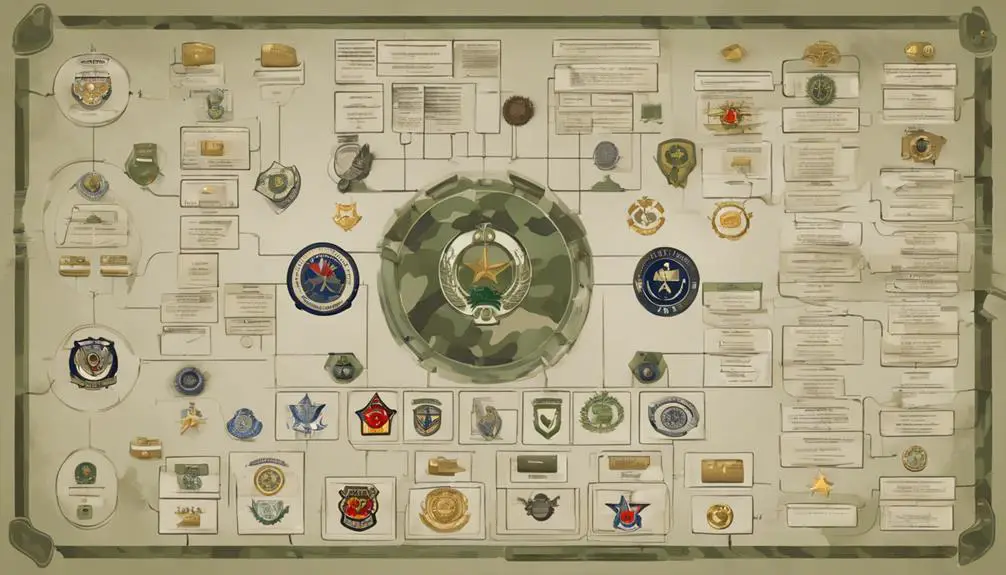
In the military, you'll find a hierarchical structure that's defined by ranks and roles, which dictate responsibilities, authority, and expectations. Understanding the military hierarchy is essential for moving through the organization and communicating effectively with your superiors and peers.
As you progress through the ranks, you'll encounter various roles, each with its own set of responsibilities and expectations. From the lowest enlisted ranks to the highest officer positions, each role has a specific function within the military hierarchy. Officer etiquette plays a significant role in maintaining respect and discipline throughout the ranks.
Commissioned officers, such as captains and majors, hold leadership positions and are responsible for making strategic decisions. Non-commissioned officers, like sergeants and corporals, oversee daily operations and provide guidance to junior personnel. Enlisted personnel, including privates and specialists, carry out the day-to-day tasks necessary to achieve military objectives. Understanding these roles and ranks is vital for succeeding in the military environment.
Tactical Terminology 101
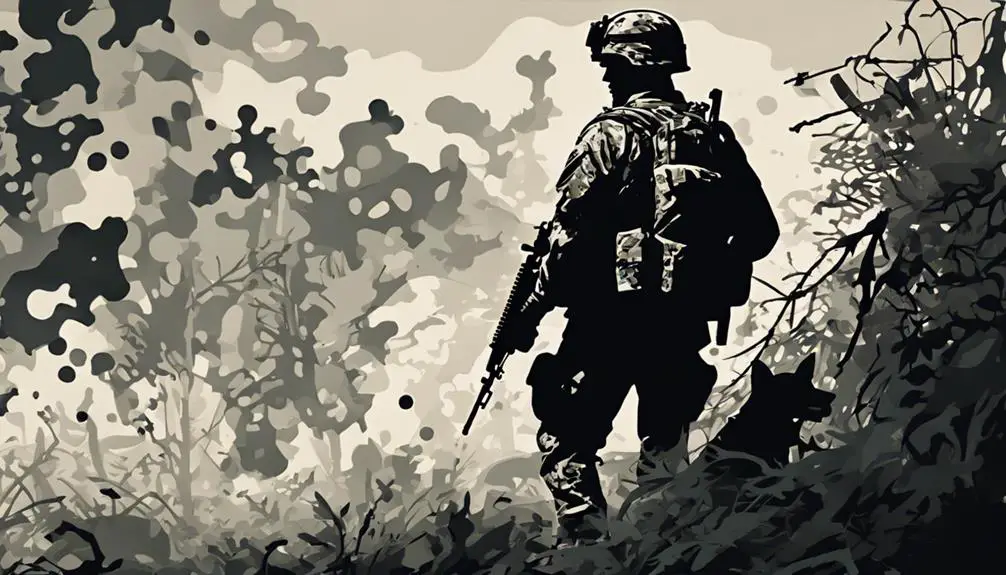
As you navigate the military hierarchy, you'll need to communicate effectively with your team, and that means speaking the language of the trade, which is where tactical terminology comes in. You'll need to familiarize yourself with the combat vernacular to convey critical information quickly and accurately. Tactical jargon is an essential part of military communication, and understanding it is important to success in the field.
Mastering tactical terminology allows you to convey complex ideas and instructions concisely, ensuring seamless coordination with your team. You'll learn to use abbreviations, acronyms, and specialized terms to convey critical information about enemy positions, troop movements, and operational plans. This shared language enables you to respond quickly to changing situations, making it an important component of military operations.
To become proficient in tactical terminology, you'll need to study and practice using the language of combat. This will enable you to communicate effectively with your team, ensuring that you can respond swiftly and effectively in high-pressure situations. With practice, you'll become proficient in the tactical jargon that's essential to military success.
Radio Lingo Decoded
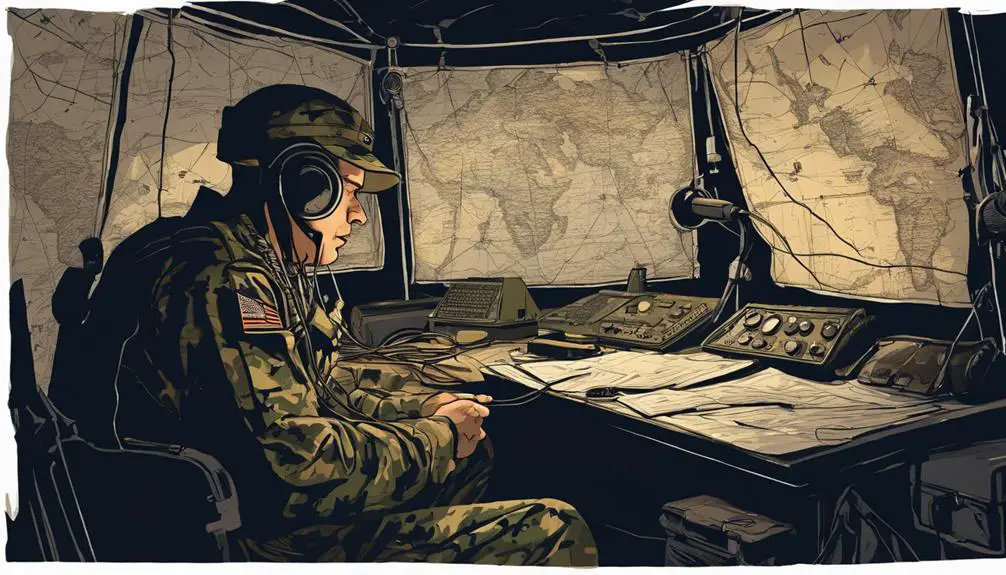
When communicating over radio frequencies, soldiers rely on a distinct vocabulary to convey critical information quickly and accurately, making radio lingo an essential component of military communication. As you'll learn, radio lingo is more than just a collection of slang terms; it's a systematic approach to conveying complex information in high-stress situations.
To guarantee effective communication, you'll need to understand radio etiquette, which dictates the proper protocols for transmitting and receiving information over radio frequencies. This includes using the Phonetic alphabet, also known as the NATO phonetic alphabet, to clearly communicate letters and numbers. You'll use this alphabet to spell out words and phrases, ensuring that critical information is conveyed accurately and without confusion.
In radio communication, every second counts, and misunderstandings can have serious consequences. By mastering radio lingo and adhering to established protocols, you'll be able to convey critical information efficiently and effectively, even in the most high-pressure situations.
Common Acronyms Defined
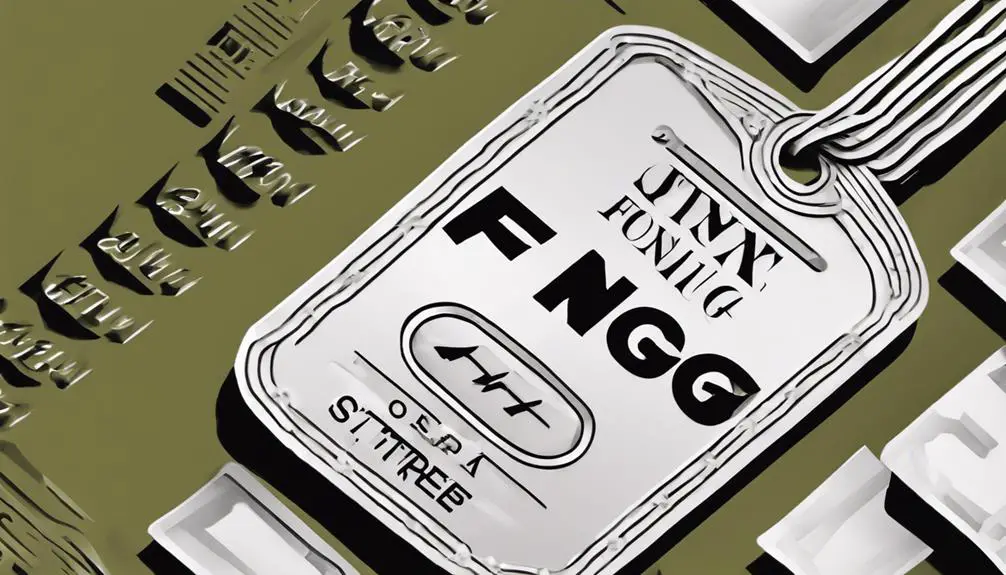
Your military training will likely expose you to a plethora of acronyms that can be confusing if not immediately understood, so, make sure to familiarize yourself with common abbreviations used in military communication. Acronyms have origins tracing back to Ancient Greece and Rome, where they were used to shorten lengthy phrases. In modern military contexts, acronyms have evolved to serve as shorthand for complex concepts, reducing communication time and increasing efficiency.
Understanding the origins of acronyms is essential to effective communication. For instance, the acronym 'SITREP' originates from 'Situation Report,' a concise way to convey critical information. Similarly, 'COMMS' is derived from 'Communications,' highlighting the importance of clear transmission. The evolution of slang in the military has led to the development of unique acronyms, allowing personnel to convey complex ideas swiftly.
Familiarizing yourself with common acronyms will enhance your ability to communicate effectively in military contexts. Take the time to learn and understand the meanings behind these abbreviations, ensuring seamless interaction with your team.
Essential Phrases for Survival
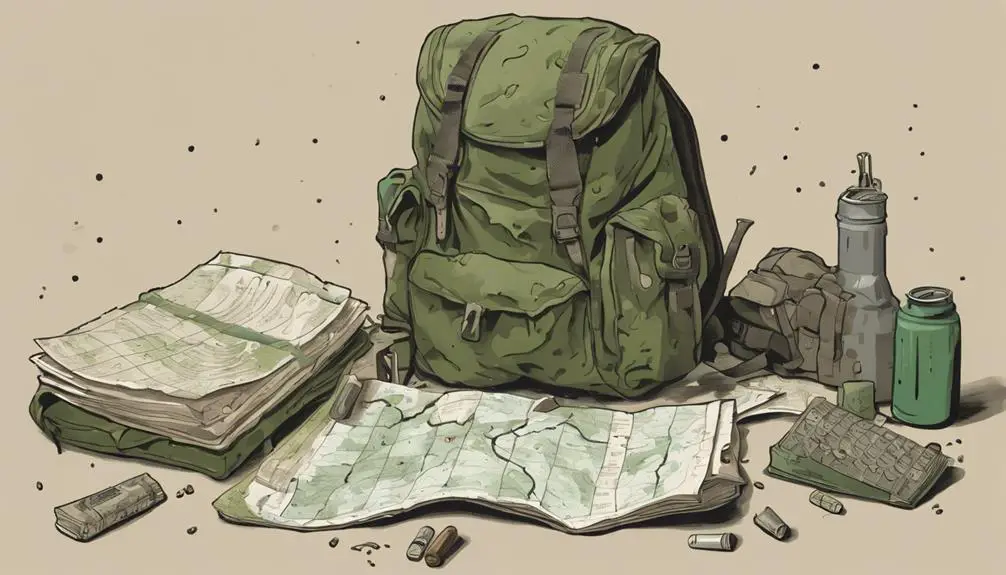
In high-stress combat situations, you'll need to communicate important information quickly, so it's essential you memorize essential phrases that can mean the difference between life and death. Familiarize yourself with critical phrases that'll help you stay alive and complete your mission.
When calling for medical assistance, shout "Medic!" to alert your battle buddies. If you're pinned down, yell "Suppressive fire!" to signal to your squad to lay down covering fire. In case of an ambush, shout "Contact, contact, contact!" to alert your team. When you need to fall back, use "Rally point, rally point!" to direct your team to a safe zone.
Frequently Asked Questions
What Is the Protocol for Addressing Senior Officers in Casual Settings?
When addressing senior officers in casual settings, you'll want to maintain proper officer etiquette. While informality is allowed, it's important to show respect. Use 'sir' or 'ma'am' when first addressing them, then switch to 'Mr./Ms./Mrs./Dr. Last Name' or their preferred title. Avoid using first names unless explicitly invited to do so. Remember to stand at attention, make eye contact, and use respectful body language to demonstrate your professionalism.
Can I Use Military Slang in Formal Written Communications?
Did you know that 70% of communication is lost in translation? When it comes to formal written communications, it's important to maintain a professional tone. You should avoid using military slang or jargon in emails, as it may confuse your audience. Instead, opt for a formal tone that resonates with your professional audience. Refrain from using colloquialisms and stick to standard English to guarantee clarity and effectiveness in your written communications.
How Do I Politely Decline a Non-Mandatory Training Exercise?
When declining optional events, you're not obligated to provide a detailed explanation. You can simply express gratitude for the invitation and politely decline. Softening the blow, you might say, "I appreciate the opportunity, but I'll have to pass on this one." Alternatively, you could cite prior commitments or conflicting priorities. Whatever your reason, be firm yet polite, and avoid apologizing excessively.
Are There Any Military Slang Terms Specific to Certain Branches?
You're likely familiar with the unique slang used in the military, but did you know that each branch has its own distinct lingo? In the Army, traditions of slang have been passed down through generations, with terms like "hooah" and "squared away" becoming staples of Army lingo. Meanwhile, the Navy's jargon has evolved over time, with phrases like " anchors aweigh" and "three sheets to the wind" originating from sailing days.
Is It Appropriate to Use Military Slang in Front of Civilians?
When engaging with civilians, it is vital to prioritize cultural sensitivity and workplace professionalism. It is important to avoid using military slang, as it could potentially confuse or alienate individuals who are not familiar with it. Refrain from utilizing jargon that is specific to military culture, as it might be perceived as exclusionary or even intimidating. Instead, choose clear, concise language that promotes effective communication.







